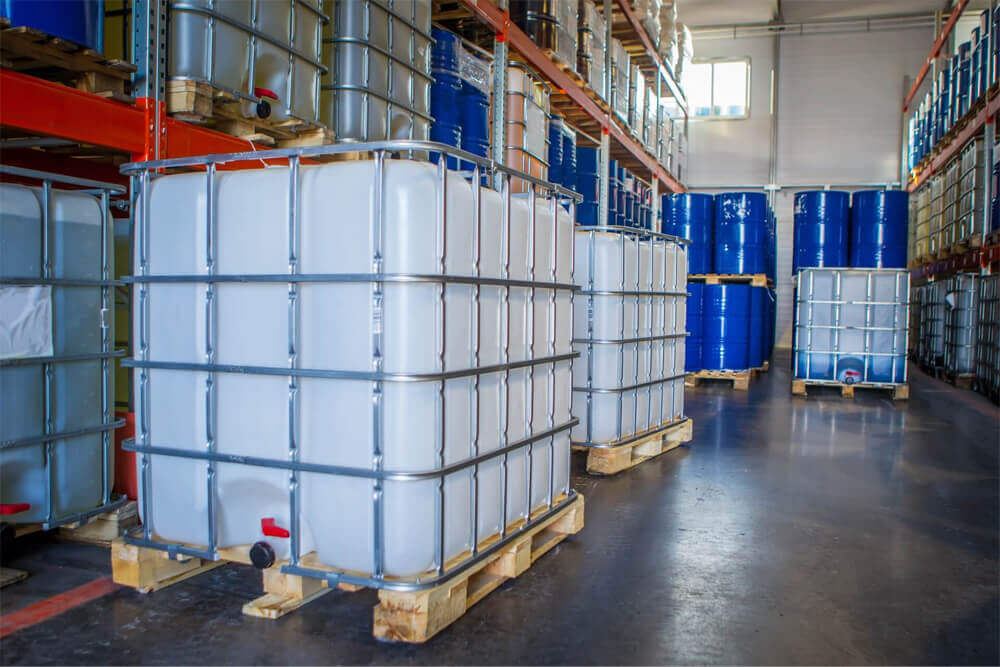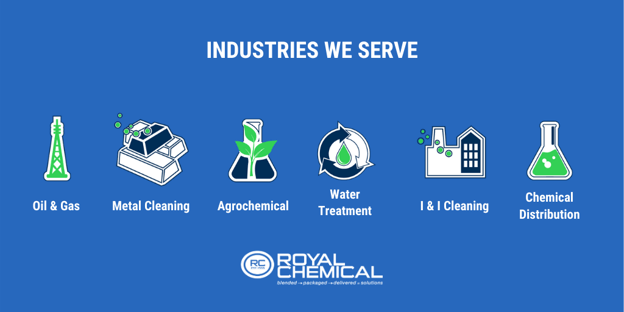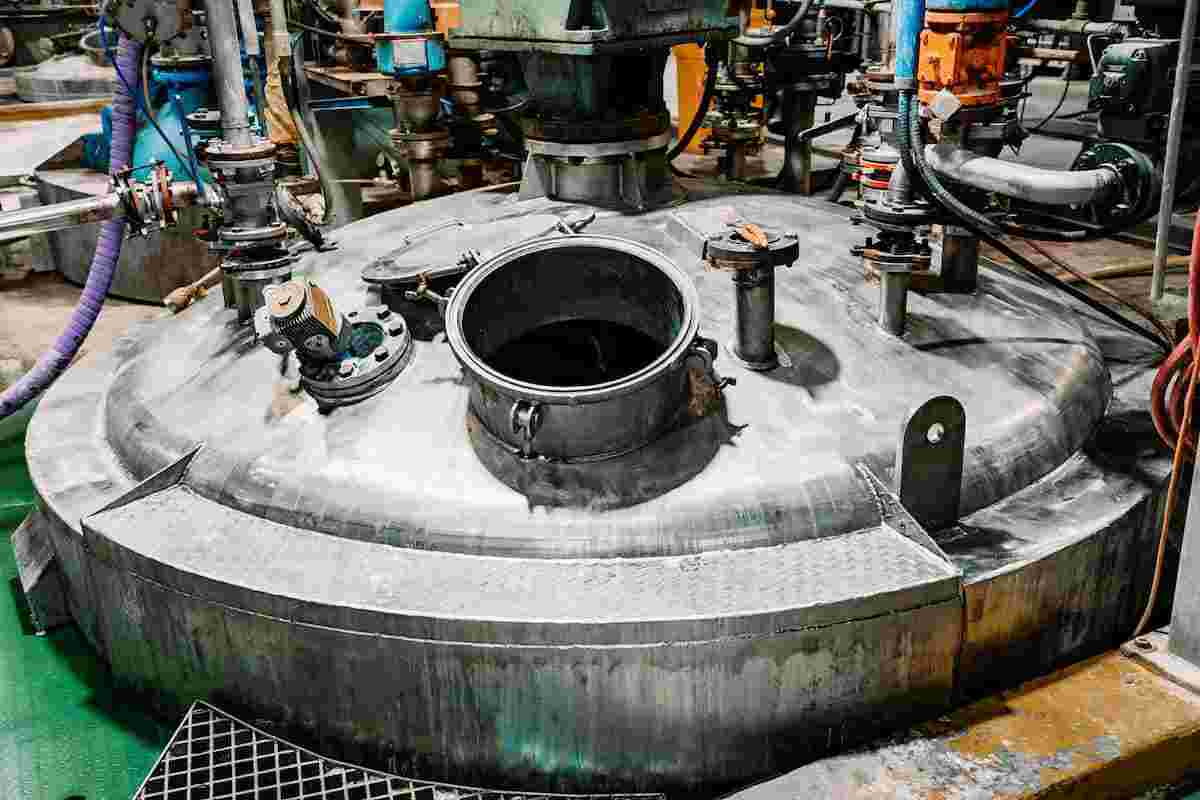
Embracing Contingency Planning For Chemical Manufacturers
If 2020 taught us anything, it’s that we as chemical manufacturers need to be prepared and flexible. Already this year, we’re hearing from customers who say they’re placing more importance on the proverbial safety nets that allow for not just Plan B, but also Plan C, Plan D and beyond.
No doubt, planning is key. At Royal, we like to refer to the law of 5Ps: Proper Planning Prevents Poor Performance. It’s a mantra that fits many situations, and one that is especially apropos in the chemical manufacturing industry.
A company that plans for the future is one that plans for success. Here’s why contingency planning can make all the difference for chemical manufacturers and why your company should strengthen your safety nets moving forward.
The importance of contingency planning
Let’s be clear: there’s room for optimism in 2021 and in contingency planning! You don’t have to live in doom and gloom, assuming the worst. But responsible companies prepare for situations that have high potential to knock production offline, at least temporarily, as well as sudden circumstances that can derail long-term growth.
Fires, hurricanes and other natural disasters happen, as do labor shortages and worldwide pandemics - although until recently, that last one might’ve sounded a little far-fetched. Now we know better, and it’s becoming clearer every day that the companies with the pre established contingency plans fared the best last year, and are already managing better in 2021.
Planning for major disruptions is important in any business. In the chemical manufacturing industry, being able to answer the following questions should serve as a sign that your company is prepared.
- How would we recover capacity if one of our plants went down for more than a day?
- How could we replace that capacity if production stalled for a week? A month or longer?
- What capabilities would be most critical to replace?
- Do we have redundancy where we need it – a secondary source of supply of materials, additional warehousing locations, and alternate reliable means of distribution?
If you can already answer these questions, then you’re in good shape moving into 2021. But if your answer is unclear or you aren’t sure, it may be time to revisit the drawing board on your emergency planning efforts.
Outsourcing contingency planning
Even the best planning can’t prevent every problem, but thoughtful preparation and contingency planning gives your company the best options and flexibility to manage your business and serve your customers, regardless of external factors.
In other words, you need a safety net.

One of the best ways to prepare for extenuating circumstances is to partner with a metaphorical safety net - a chemical contract manufacturer. Partnering with an experienced contract manufacturer gives you ready access to the equipment and resources you need to continue serving your customers. When you have a secondary or contingent location, you can assure your customers their products will continue to flow through the production line no matter what happens.
There is a more optimistic reason to look for that safety net. ‘Plan for the worst, hope for the best’ is a valid premise, too. For companies with aggressive growth plans, there are even more reasons for partnering with a toll blender who understands your business.
Having the ‘safety net’ of additional capabilities, redundancies, and flexible purchasing, warehousing and distribution options positions your company to reach or exceed sales projections and growth plans.
Choosing a contingency planning partner
Whether you’re feeling optimistic or determined to protect your most basic business interests, before entering into an agreement with a contract manufacturer, it’s paramount to identify the right partner organization.
Below are some of the questions you should discuss with potential partners, from the most fundamental to more granular considerations.
- Does the company have the proper equipment, capacity, experience, and quality assurance to manufacture all (or most) of the products on your line?
- What is the company’s delivery history and on-time record?
- Is the manufacturer experienced with tech transfer packets?
- Is the company’s culture compatible with your organization?
- What kind of safety and regulatory compliance history does the company have?
- Are customer audits permitted? (Most reputable contract manufacturers allow, or even encourage, customer visits and process reviews.)
- Is the company open to collaborations, willing to consider entering new markets or investing in new equipment to respond to qualified opportunities?
If you answered yes to all of these questions, rest assured you’ve chosen a great chemical contract manufacturer to assist with your contingency planning. If you answered “no” even a couple of times you may still want to look elsewhere. When it comes to finding the perfect partner you can trust, there isn’t a ton of room for mistakes.
Partnering with Royal Chemical
Royal Chemical is an ideal contract manufacturing contingency planning partner. Royal Chemical has more than 80 years of experience in contract manufacturing, established relationships with almost 400 vendors, expertise in powder and liquid blends, myriad packaging configurations and comprehensive warehousing and fulfillment services. Each of our five locations has a fully-staffed QC lab.

As a large contract manufacturer, Royal is proud to provide its clients with the assurance that when a “contingency” order rolls out, the process is seamless and your end customers receive their products as expected – in fact, our goal is that our clients’ customers don’t notice any changes in their usual orders.
Royal has the equipment, space and manufacturing expertise necessary to fulfill orders and keep customers (and sales projections) on track. If your contingency plan needs a facelift in 2021, start here.
Schedule a consultation with Royal Chemical today, and plan for peace of mind in 2021 - no matter what.
Talk to an Expert
Streamline Your Chemical Manufacturing Process
Royal Chemical’s expertise in blending, packaging and shipping can save you time, reduce costs and deliver consistent results.













